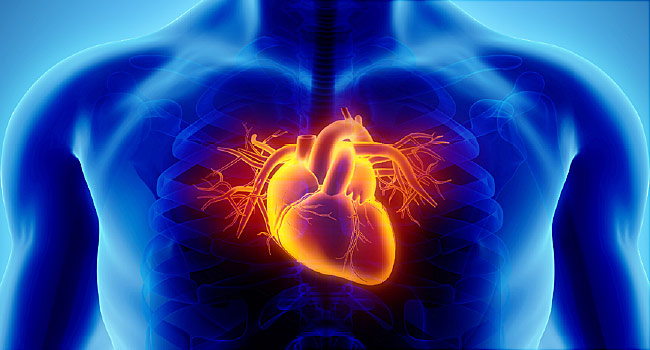Official Medical Studies State
Coronavirus Damages The Heart Confirming Previous Site
ClaimsCoronavirus Causes Cardiovascular
Damage
September 16. 2020

Heart
A report in JAMA Cardiology stated that
medical researchers discovered in July 2020 that the
novel coronavirus (Covid-19) damages the heart (see
external article excerpts below). This confirms what I
wrote 3-months prior on April 10, 2020 in the article "Reports Confirm Obesity And
Compromised Immune System Linked To Severity Of Coronavirus Infections
As Previously Stated On The Site."

My tweet on Twitter.com about heart damage from
coronavirus which I posted 4-months prior to an official
study that pronounced their findings revealing
coronavirus does indeed damage the heart
In my April 10, 2020 article "Reports Confirm Obesity And
Compromised Immune System Linked To Severity Of Coronavirus Infections
As Previously Stated On The Site" I wrote, "On March 28, 2020,
Boris Johnson announced he has the coronavirus. One day
later on March 29th and again on March 30th, I warned on
Twitter.com that he needed to have his heart monitored,
which would occur in a hospital setting, as his weight
and age poses a greater risk with coronavirus."
STORY SOURCE
Research reveals heart complications in COVID-19
patients
Jul 27, 2020 - Two German studies
published today in JAMA Cardiology show abnormal heart
imaging findings in recently recovered COVID-19
patients, and cardiac infections in those who have died
from their infections.
The first, an observational cohort
study, involved 100 unselected coronavirus patients
identified from the University Hospital Frankfurt
COVID-19 Registry from April to June, 57 risk
factor-matched patients, and 50 healthy volunteers.
Cardiac magnetic resonance (CMR) imaging
revealed heart involvement in 78 patients and active
cardiac inflammation in 60, independent of underlying
conditions, disease severity, overall course of illness,
and time from diagnosis to CMR.
Thirty-three of 100 patients required
hospitalization. Detectable levels of high-sensitivity
troponin were found in 71 COVID-19 patients, while
significantly elevated levels were detected in five
patients. Recovered COVID-19 patients had lower left
ventricular ejection fraction, higher left ventricle
volumes, higher left ventricle mass, and elevated native
T1 and T2 than controls, all indicating heart
dysfunction.
Seventy-eight coronavirus patients had
abnormal CMR findings, including 73 with raised
myocardial native T1, 60 with raised myocardial native
T2, 32 with myocardial late gadolinium enhancement, and
22 with pericardial enhancement, all signs of heart
damage. Biopsy of the heart muscle in patients with
serious findings showed ongoing immune-mediated
inflammation.
Exacerbation of underlying heart disease
The study authors noted that while most
coronavirus research has focused on short-term
respiratory complications, particularly in critically
ill patients, mounting evidence suggests that COVID-19
has a significant impact on the cardiovascular system by
worsening heart failure in patients with preexisting
cardiac diseases...
https://www.cidrap.umn.edu
Coronavirus associated with heart damage, study
finds
July 13, 2020 04:07 PM - More than half
of COVID-19 patients showed some form of heart damage in
scans after their illness, according to a recent study
that adds to mounting evidence showing the virus may
cause cardiac injury.
An observational analysis of more than
1,200 confirmed and suspected COVID-19 patients across
69 countries between April 3 and April 20 found heart
abnormalities in 55% after they underwent
echocardiograms, with 1 in 7 experiencing severe cardiac
disease.
The results were recently published in
the European Heart Journal–Cardiovascular Imaging. The
majority of patients tested had no pre-existing heart
problems, yet 46% of that group were found to have heart
abnormalities, with 13% showing signs of severe disease.
"Building on this study, there is now a
need for future imaging and biomarker studies to
systematically investigate the cardiovascular
manifestations of COVID-19, and to establish their true
prevalence," researchers wrote.
Study participants' average age was 62
and 70% were male. Normal indicators that would alert
clinicians of the possibility of a heart problem were
not present in most of the patients who had abnormal
echocardiograms. Only 11% of patients with abnormal
scans reported having chest pains, while signs of
arrhythmia, or irregular heartbeat, were found in only
5% of that same group. Such indicators normally prompt
clinicians to conduct more tests, like an
echocardiogram, to look for heart issues...
https://www.modernhealthcare.com
RELATED ARTICLES

